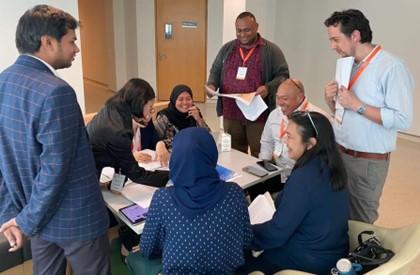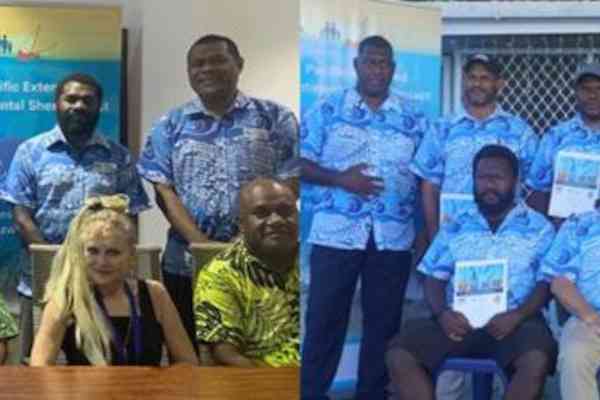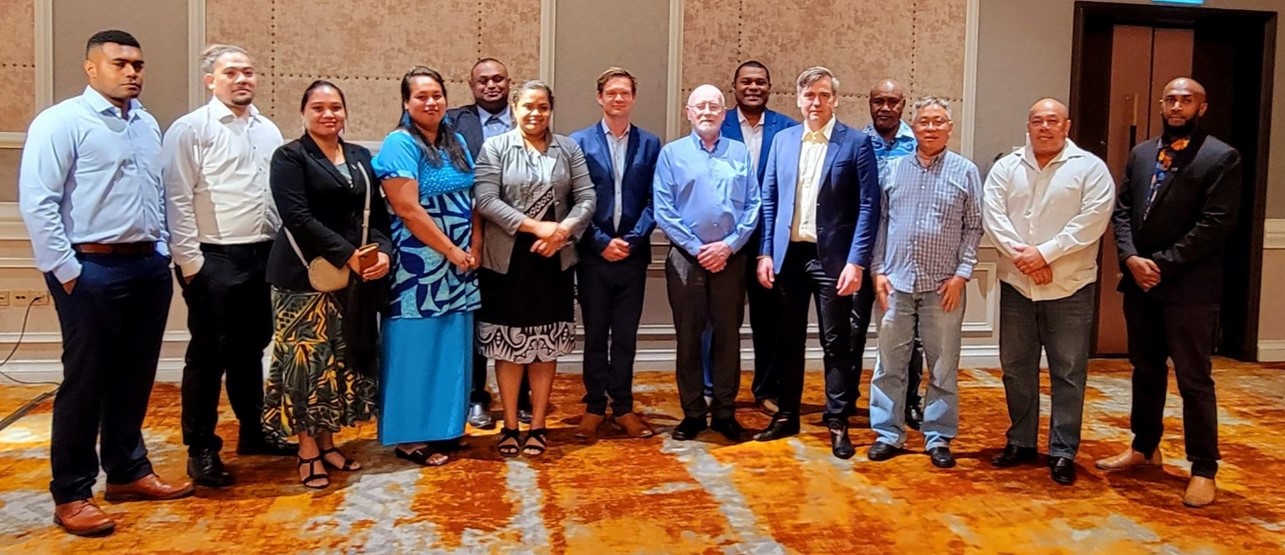
Did you know Pacific Ocean governance goes beyond the reef, beyond the horizon, and, in some cases, it can even go beyond the 200 nautical miles Exclusive Economic Zone (EEZ)?
Under the United Nations Convention on the Law of the Sea (UNCLOS), a country has the exclusive right to explore and manage resources on the seabed of the continental shelf, including beyond the EEZ if certain criteria are met. Defining and establishing ownership of these extended continental shelf (ECS) areas is a high priority for the Leaders of the Blue Pacific.
“If all outstanding Pacific ECS claims are recommended, this will add an additional 1.8 million km2 to the footprint of the Blue Pacific”, said the Pacific Ocean Commissioner, Dr Filimon Manoni at a recent World Ocean Day event.
To strengthen Pacific capacity to progress ECS claims with the United Nations, the Pacific Community arranged for eight technical officials from the governments of the Solomon Islands, Cook Islands, Fiji, Vanuatu, Kiribati, and the Kingdom of Tonga to attend a Summer Academy on the Continental Shelf course, which took place in Singapore from the 7th – 13th May 2023.
The training was co-organised by the Centre for International Law of the National University of Singapore and the University of Faroe Islands and delivered to 30 participants from across Asia and the Pacific.
It included presentations by sitting members of the United Nations Commission on the Limits of the Continental Shelf (UNCLCS). This gave the Pacific participants the opportunity to delve deeper into real case studies and enabled them to better understand the process and the next steps for their respective individual and joint submissions.
“As someone very new to Maritime Affairs, I lack the basic knowledge on the Continental Shelf. To be honest, trying to interpret the UNCLOS on my own is very difficult. The convention itself is not just laws, it also includes technical interpretation, scientific research, methodologies and evidence-based recommendations. That is why this training was very important to me,” Fiji technical officer Vilimone Raqona said.
“Now the methodologies used for the delimitation process are much clearer.”
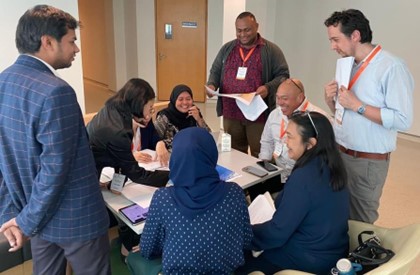
The participation of the eight Pacific experts is made possible by the Pacific Community (SPC), the region’s leading scientific and technical agency. SPC has worked alongside Pacific member countries to establish, secure, and operationalise their maritime zones for close to three decades.
The Pacific Extended Continental Shelf Project is specifically focused on ECS work and is graciously funded by the United Kingdom.
The Pacific Extended Continental Shelf Project was launched in July 2021 under the UK’s Conflict, Stability, and Security Fund. It is supporting Pacific Island Countries to build local capacity, procure specialised software and hardware, acquire data, and, where required, engage experts in geophysics and legal drafting to help progress ECS submissions.
There are 10 Pacific Island Countries (PICs) with 9 ECS submissions at various stages in the queue awaiting examination and recommendation from the United Nations Commission on the Limits of the Continental Shelf (UNCLCS).
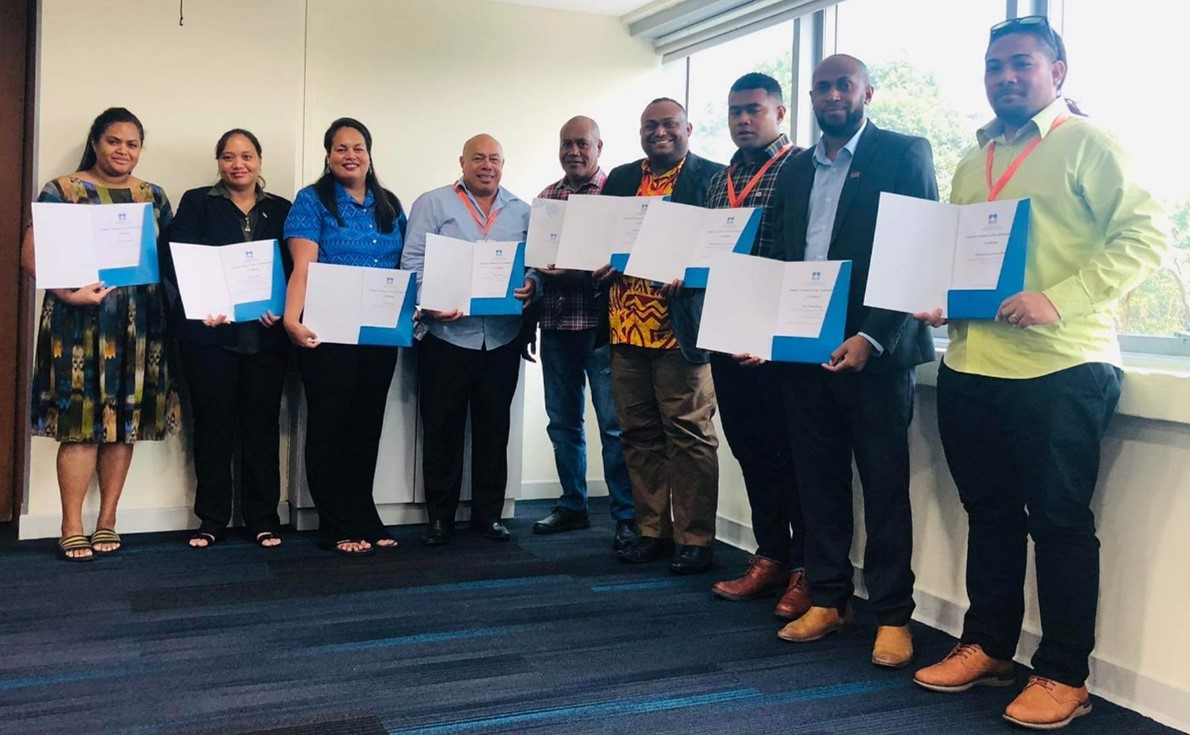
“This is the first official ECS training attended by participants from the Pacific that were led by the Commissioners on the CLCS as well as leading practitioners in the field. We are fortunate to have been able to attend this training as each country with an ECS submission will need to be well-versed in the highly technical work in order to eventually defend these submissions at the UN,” said Mr Malakai Vakatauwale, Maritime Boundaries Advisor of the Ocean and Maritime Programme under the GEM Division of SPC.
In the future the Pacific Community hopes a training of similar nature will be co-organised with the University of the Faroe Islands, to be hosted within the Pacific to allow for the greater participation of national experts.
